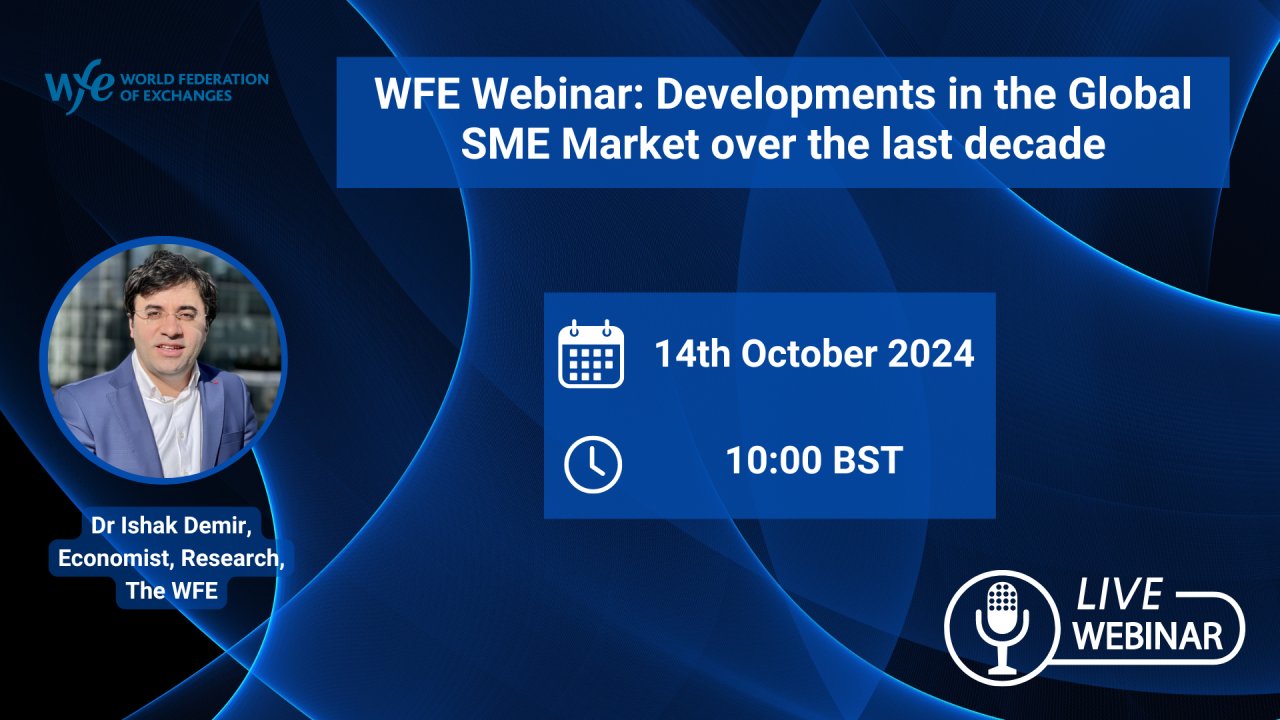WFE Webinar
The Index Liquidity Landscape: Active and Passive Applications of Index-Linked Products

Summary: A robust and active trading ecosystem benefits asset owners and investment managers by fostering transparency, market efficiency, and investor confidence.
As the value of asset tracking indices continues to rise, how have equity and fixed income trading ecosystems evolved with them – and what kind of market participants are involved?
Join the head of S&P DJI’s thought leadership to explore the latest analysis of index liquidity, why the index ecosystem matters and how it provides perspective on the use of indices, including the S&P 500® and iBoxx, as the basis for active and passive investment strategies.
Format: There will be a 30 min conversation followed by an audience Q&A.
This is an open event. Feel free to share with colleagues inside your organisation who may be interested. This event is for financial professionals only.
Kaitao joined the World Federation of Exchanges in May 2020 and currently holds the position of senior financial economist in the Research Team. Kaitao holds a Ph.D. in Finance from the University of Houston and is a Chartered Financial Analyst® (CFA®) charterholder. His research focuses on market microstructure issues, such as trading rules, their effects on market participants, and market quality. His current work includes ESG and crypto assets. Kaitao’s papers have been accepted for publication in well-regarded academic journals, such as the Quarterly Journal of Finance, and presented in various international conferences, including the U.S. SEC Ph.D. Symposium, the China International Conference in Finance, and the Financial Management Association Annual Meeting.
Tim Edwards is Managing Director and Global Head of Index Investment Strategy at S&P Dow Jones Indices (S&P DJI). The group provides research and commentary on S&P DJI’s entire product set, including U.S. and global equities, commodities, fixed income, and economic indices.
Prior to joining S&P DJI in 2013, Tim worked for Barclays Capital, initially within fund-linked derivatives and subsequently in exchange-traded products and index-linked derivatives. Prior to that, he worked at the Royal Institution of Great Britain.
Tim holds a Ph.D. in pure mathematics from University College London.